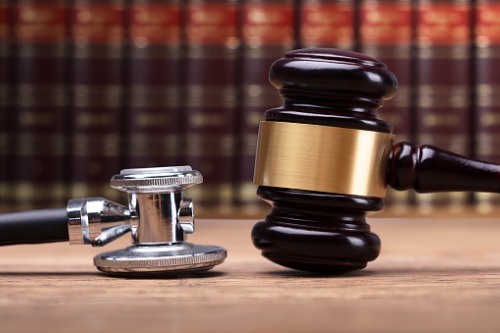
Jailing children as young as 10 is a "national tragedy," the bodies say

Australia’s peak bodies for the legal and medical positions have urged the government to raise the minimum age of criminal responsibility in the country.
Jailing children as young as 10 is a “national tragedy,” the Law Council of Australia and the Australian Medical Association (AMA) said in a joint statement.
“The Law Council and AMA believe the arrest, detention, or imprisonment of a child should be used only as a measure of last resort, and should only occur for the shortest appropriate period of time,” they said. “Prison should not be a rite of passage for any child.”
The bodies pointed out the harms of the current system to children, who they say are less likely to finish school or find a job, as well as more likely to die an early death, if forced into contact with the criminal justice system.
The Law Council and the AMA are advocating for the age of criminal responsibility to be raised to 14 years. In all Australian jurisdictions, the minimum age of criminal responsibility is 10 years.
The Law Council said that such a move would remove the need for the courts to consider the “doli incapax” doctrine, which holds that anyone aged 10 to 14 years cannot be held responsible for a crime if they do not understand that the behaviour is seriously wrong.
A challenge to attorneys-general
Arthur Moses SC, president of the Law Council, said that raising the minimum age of criminal responsibility not only brings Australia in line with international human rights standards, but it also maximises the chances of vulnerable children to live productive and happy lives. He also pointed out that First Nations children are disproportionately impacted by the current system.
“Aboriginal and Torres Strait Islander young people are at least 23 times more likely to be in detention than non-Indigenous young people,” Moses said. “Early contact with the criminal justice system increases the chances of reincarceration, leading to an almost-inevitable progression to the adult corrections system. It does not make communities safer.”
He also challenged the attorneys-general of Australia, as well as called for bipartisan support for the change.
“The attorneys-general know this is the case. It is time that they showed some courage and leadership to implement these changes. There should be a bipartisan approach to this pressing issue by our politicians. Our children should not be used as political footballs in a law-and-order auction,” he said.
Vicious cycle
Dr Tony Bartone, AMA president, said that children rarely commit serious offenses. He also said that more than half of children in detention are unsentenced, being either detained by police prior to court or on remand awaiting trial or sentencing. These children are often victims of abuse and neglect, with many suffering mental health conditions, cognitive impairments, and other significant challenges, he said.
“Raising the age of criminal responsibility will prevent the unnecessary criminalisation of vulnerable children,” Bartone said, adding that the AMA views the incarceration of children as unacceptable.
“Most children in prison come from backgrounds that are disadvantaged. These children often experience violence, abuse, disability, homelessness, and drug or alcohol misuse,” he said. “Criminalising the behaviour of young and vulnerable children creates a vicious cycle of disadvantage and forces children to become entrenched in the criminal justice system.”
The AMA is urging the Commonwealth, state, and territory governments to support developmentally and culturally appropriate health, education, and rehabilitation-based alternatives to the criminal justice system.